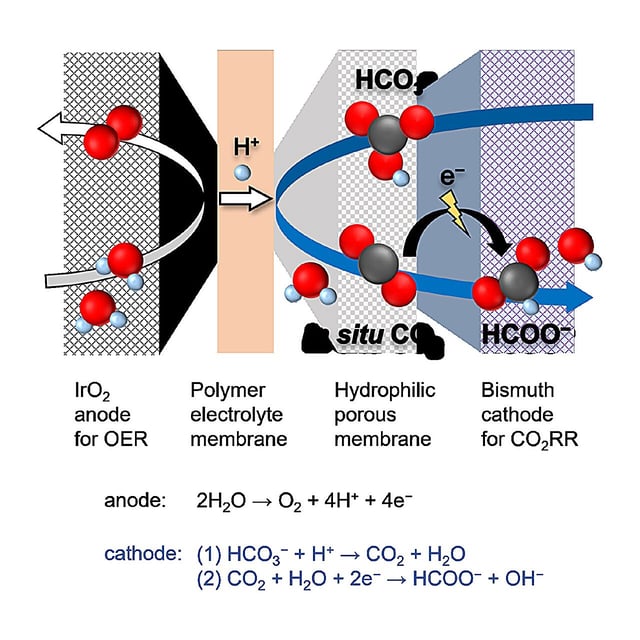Overview
- The new electrochemical cell features a polymer electrolyte membrane and a porous cellulose ester layer, enhancing selectivity and efficiency in converting bicarbonate ions to formate ions.
- This technology offers an energy-efficient alternative to traditional methods that require pure, pressurized carbon dioxide, which are highly energy-intensive.
- The cell demonstrated a faradaic efficiency of 85%, meaning a high proportion of electrons were converted into formate rather than other byproducts.
- The cell operated continuously for over 30 hours, achieving nearly complete conversion of bicarbonate to solid, crystalline formate fuel.
- Formate fuel, which is non-combustible and stable for long periods, presents a practical and durable green energy solution, with potential applications ranging from home power units to industrial scales.

